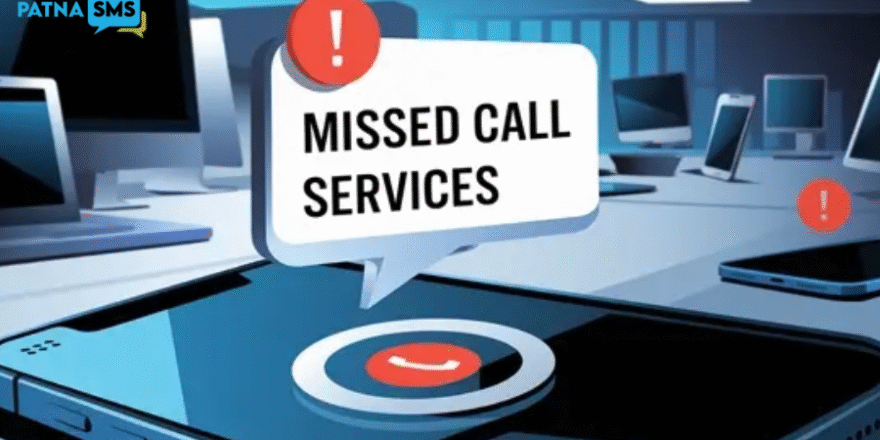Promotional SMS for Election, In today’s digital-driven world, political campaigning has evolved far beyond traditional rallies, posters, and TV ads. The rapid rise of mobile technology and the universal reach of smartphones have transformed the way political parties connect with voters. Among the most effective and cost-efficient strategies available today is Promotional SMS for Election.
Unlike other promotional tools, SMS marketing ensures direct communication with voters in real-time, delivering a personalized and impactful message that can influence voter behavior. With mobile penetration increasing even in rural areas, SMS has become a backbone for election campaigns across the globe, especially in India.
This article explores the role of Promotional SMS for Election, its benefits, strategies, compliance with election commission guidelines, and how it can shape the outcome of political campaigns.
Why Promotional SMS for Election Matters in Election Campaigns
Political campaigning is all about communication—getting the right message across to the right people at the right time. SMS offers exactly that.
- High Reach and Accessibility
SMS can reach people across villages, towns, and cities—even in areas where internet penetration is low. Almost every voter has a mobile phone, making SMS one of the most inclusive tools. - Instant Delivery
Promotional SMS for Election is delivered instantly, ensuring that voters receive updates, announcements, or reminders in real time. This speed is crucial during fast-changing election dynamics. - Cost-Effective Strategy
Compared to TV ads, rallies, and print campaigns, SMS is far cheaper and offers a much higher ROI. Political parties can send millions of SMS at a fraction of traditional campaign costs. - Personalization & Targeting
SMS can be personalized with the voter’s name, constituency details, or issues relevant to their area. Personalized messages build trust and increase voter engagement. - Compliance & Security
With proper approval and DLT registration in India, promotional SMS campaigns can be run in compliance with telecom regulations and Election Commission guidelines.
Types of Promotional SMS for Election

Election SMS campaigns can take various forms depending on the campaign objective:
1. Awareness SMS
These messages spread awareness about the election schedule, polling booths, and voter ID requirements.
Example: “Dear Voter, your vote matters! Cast your vote on 12th October at Booth No. 45, Ward 12.”
2. Candidate Promotion SMS
Highlighting the achievements, promises, and personality of the candidate.
Example: “Vote for Development! Support Mr. Rajesh Kumar for a stronger future in your constituency.”
3. Party Manifesto SMS
Informing voters about party policies, promises, and initiatives.
Example: “Our vision: Better healthcare, quality education, and employment opportunities. Vote for Party XYZ.”
4. Reminder SMS
Sending reminders on election day or during campaign rallies.
Example: “Your voice matters! Don’t forget to vote for progress on 12th October. Booth 21, near Primary School.”
5. Event Promotion SMS
Inviting people to rallies, roadshows, or town-hall meetings.
Example: “Join us at the Grand Rally on 10th October, 4 PM at Central Ground. Be part of the movement!”
Benefits of Promotional SMS for Election Campaigns
1. Direct Communication with Voters
Unlike social media ads that can get lost in endless feeds, SMS lands directly in the voter’s inbox, ensuring visibility.
2. Supports Rural Outreach
In India, where rural voters form a significant base, SMS is the most reliable way to reach areas with poor internet.
3. Building Trust & Transparency
Regular updates via SMS show that a candidate cares about communicating directly with voters, strengthening trust.
4. Data-Driven Campaigning
Using voter databases, SMS campaigns can be targeted to specific demographics—youth, women, first-time voters, or region-specific groups.
5. Quick Crisis Management
During controversies or misinformation, a candidate can instantly clarify their stance through SMS, reducing negative impact.
How to Run a Successful Promotional SMS for Election
Step 1: Build a Verified Database
The first step is gathering accurate voter contact information. This must be done ethically and in compliance with data privacy rules.
Step 2: Segment Your Audience
Divide the database based on age, region, occupation, or past voting patterns. Tailor messages for each segment.
Step 3: Craft a Clear & Concise Message
Political SMS must be short, clear, and powerful. It should strike an emotional chord or provide valuable information.
Step 4: Choose the Right Timing
Sending SMS at appropriate times ensures better visibility. For example, sending reminders a day before and on election day increases voter turnout.
Step 5: Compliance with Election Commission Rules
Ensure all SMS campaigns are approved by the Election Commission and telecom operators through DLT registration. Unauthorized messages can lead to penalties.
Step 6: Track and Analyze
Use SMS gateways that provide delivery reports, open rates, and engagement analysis. This helps refine the strategy.
Election Commission Guidelines of Promotional SMS for Election Campaigns
Running Promotional SMS for Election is subject to strict guidelines. Some key points include:
- All bulk SMS must be registered under DLT platforms in India.
- Content must be pre-approved by the Election Commission before circulation.
- No messages can promote hate speech, religion-based bias, or misinformation.
- Spending on SMS campaigns must be included in the candidate’s election expenditure report.
- SMS cannot be sent during “silent hours” (usually 48 hours before voting).
Compliance ensures the campaign runs legally and builds voter trust.
Real-Life Case Studies of Promotional SMS for Election
1. India General Elections
In India, several political parties used SMS campaigns extensively. SMS helped them remind voters about polling dates, share manifestos, and promote rallies.
2. US Presidential Elections
SMS marketing was used by Barack Obama’s campaign to mobilize youth voters, raise funds, and share real-time updates. It played a significant role in his victory.
3. Local Body Elections
In smaller elections, SMS became the most affordable and effective way to promote candidates without huge advertising budgets.
Best Practices for Writing Election SMS
- Keep it short and clear (within 160 characters).
- Use the voter’s name for personalization.
- Add a call-to-action (e.g., “Vote for progress on 12th Oct”).
- Highlight key achievements or promises in simple words.
- Stay compliant with regulations to avoid penalties.
Example:
“Dear Anil, your vote can bring change. Support Party ABC for better schools & jobs. Vote on 12th Oct, Booth 42.”
Future of Promotional SMS for Election
With technology advancing, SMS will continue to play a crucial role but with added features:
- Integration with WhatsApp and RCS – Rich media messages with images, videos, and links.
- AI-Powered Personalization – Messages tailored to individual voter interests.
- Two-Way Communication – Voters responding to SMS surveys or feedback campaigns.
- Geo-Targeting – Messages based on a voter’s exact location.
This ensures that Promotional SMS for Election remains relevant even in the digital-first era.
Challenges in SMS Election Campaigning
- Message Fatigue – Overloading voters with messages may backfire.
- Regulatory Hurdles – Strict guidelines must be followed, or campaigns risk disqualification.
- Database Accuracy – Inaccurate phone numbers waste resources.
- Misinformation Risk – SMS must be monitored to prevent fake news.
Conclusion
In modern political campaigns, Promotional SMS for Election is not just a communication tool—it’s a game-changer. It empowers political parties and candidates to connect directly with voters, share their vision, and remind them of their civic duty. When used strategically and ethically, SMS campaigns can significantly influence voter turnout and election outcomes.
As elections become more competitive, those who embrace innovative tools like SMS will gain a significant edge. From local elections to national campaigns, SMS marketing will continue to shape the future of political communication.





